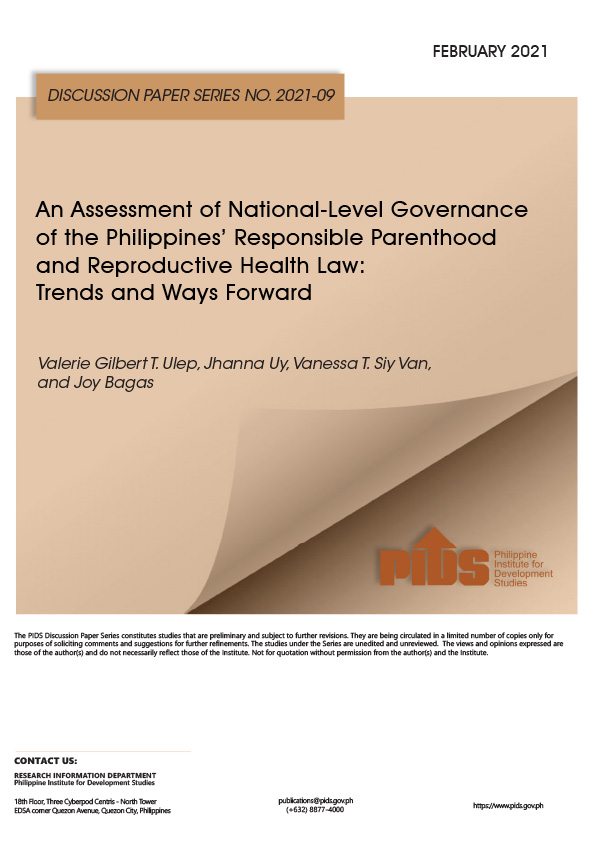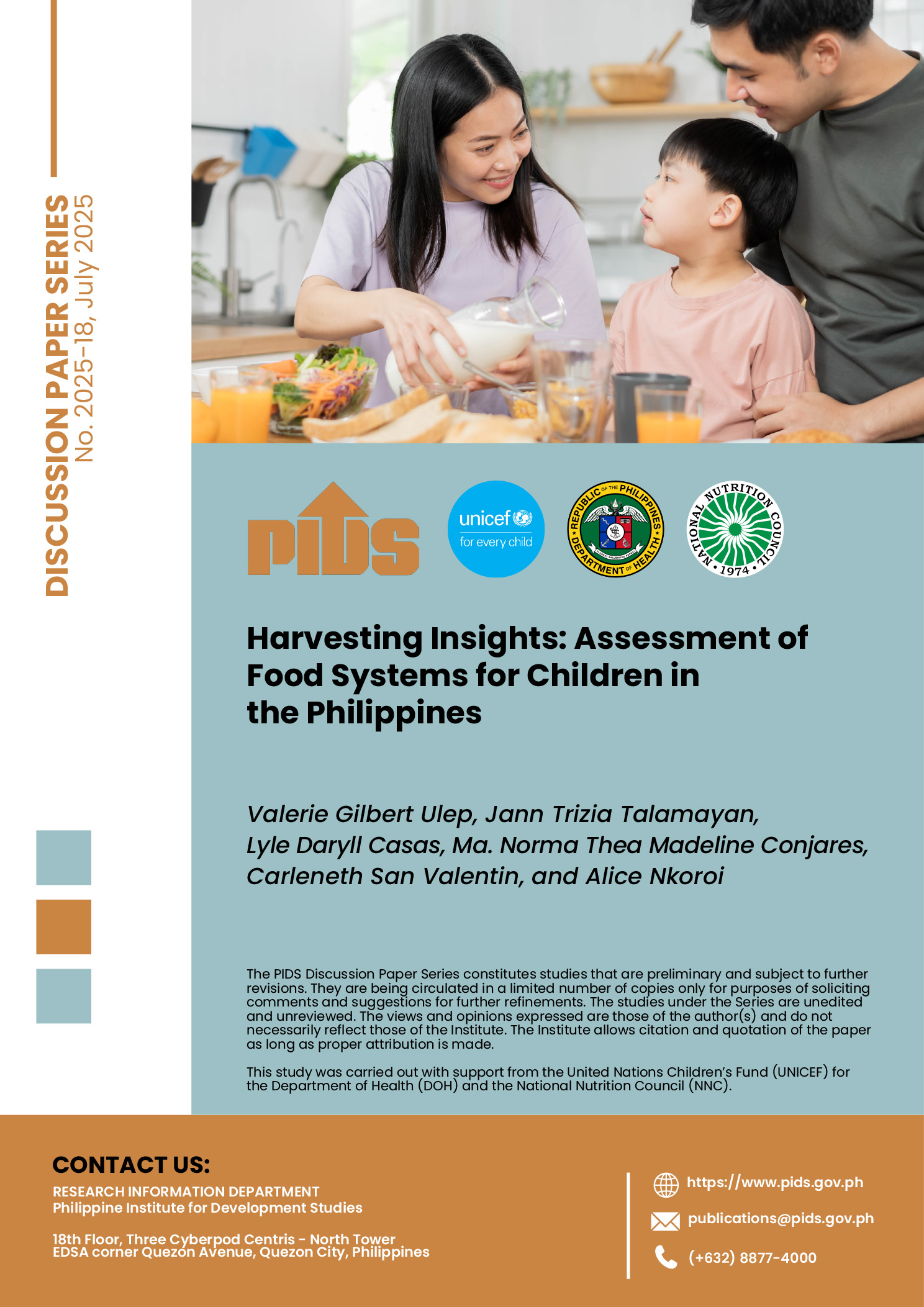Given its wide scope, understanding the progress made by the Responsible Parenthood and Reproductive Health (RPRH) Law requires an acknowledgement of the many movers that set its machinery in motion. This paper analyzes the governance role played by national government agencies (NGAs) in the implementation of the RPRH Law over the last eight years. It focuses on nine components of governance, namely, organizational presence, policy infrastructure, financing, human resources, stewardship, coordination, monitoring and evaluation, and accountability, in their RPRH activities.
While NGAs had accomplished, or at least begun to accomplish, most of their mandates and responsibilities, the performance was siloed within implementing units of agencies, with modest interagency coordination. Despite the vision for multisectoral RH services, programs focused on biomedical and healthcare interventions, particularly in the area of family planning. Moreover, national-level governance for RPRH implementation focused on specific programs and their operational concerns. Fragmented governance activities result from a lack of integrated plans and coordination mechanisms in the nine governance components to bridge NGAs’ efforts across sectors.
Comments to this paper are welcome within 60 days from date of posting.
Email publications@mail.pids.gov.ph.













